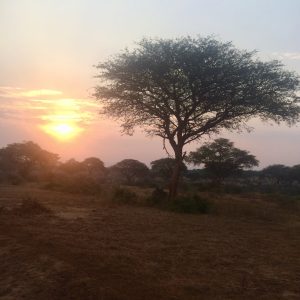Reflections from our first visit to Uganda!
Our Director travelled to Uganda with the University of Manchester’s Humanitarian and Conflict Response Institute. The visit concentrated on three centres: Kampala in the south, Kiryandongo in central Uganda and home to the Kiryandongo Refugee Settlement, and Gulu, in northern Uganda, the former epicentre of the Lord’s Resistance Army conflict.
Whilst the focus of the trip was to study humanitarianism in practice, from a business perspective the journey once again confirmed the necessity of any prospective exporter to visit the country in order to check how written facts and statistics relate to the reality on the ground. Firstly, the sheer size of Uganda becomes evident. Uganda looks very small on the standard Mercator map projection of Africa but it is approximately the size of the UK. With relatively poor transport infrastructure a company solely based in the south will not easily be able to serve the north. The cultures and language between north and south, indeed throughout Uganda, are also different so take this into consideration.
Over many years we have referred UK companies to the DIT’s aid-funded business network as a risk-free way of supplying goods and services to the third sector. This visit offered the ideal opportunity to see where the products sold to aid agencies end up. On the long road journey to the north it was remarkable how many signs there were denoting aid-funded infrastructure or other projects. We learned how these projects, with their supplies and agency personnel, have helped communities move forward. However, we also came face-to-face with the ethical issues of aid which are hotly debated “back home”. What happens when aid agencies move out of an area that has grown its economy around servicing them? Supplying equipment is not enough if, for example, spare parts and training to maintain and repair it is not given. Does this create aid dependency? Does giving ongoing international aid absolve local governments of their responsibilities?
Uganda is a beautiful country with diverse climates, natural resources, languages and cultures. It is a member of the Commonwealth as well as other regional economic groupings such as the Common Market for East and Southern Africa (COMESA) and East African Community (EAC). If you have a local Commonwealth Association, for example the Merseyside and Cheshire Commonwealth Association then networking with your local Ugandan diaspora is a great way to learn. You can also contact the DIT team in Kampala to see how they can help with your export objectives.

